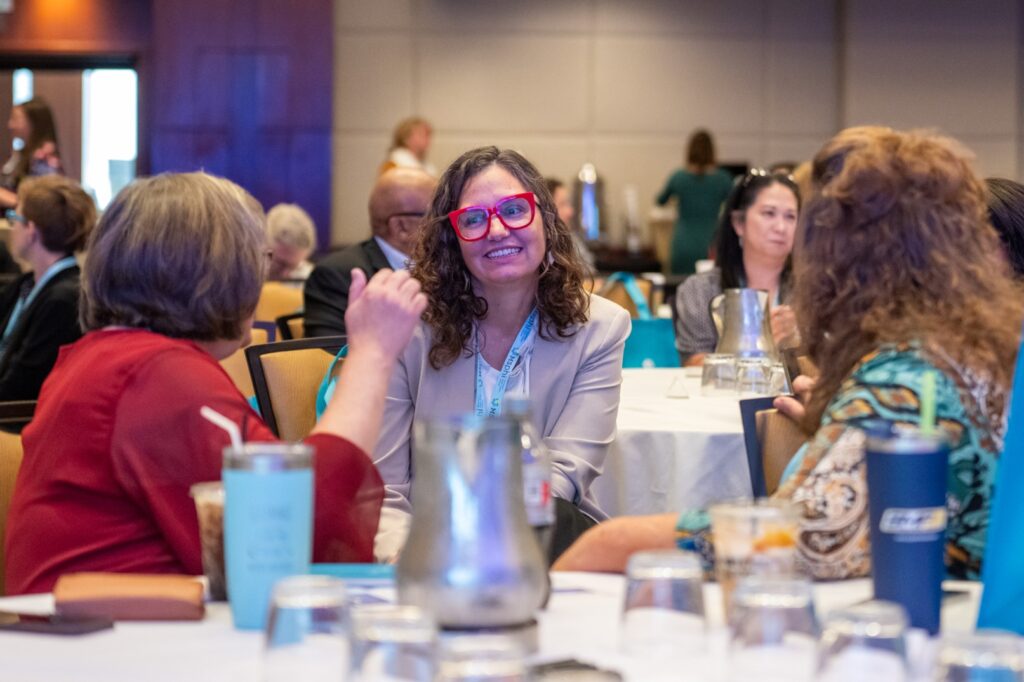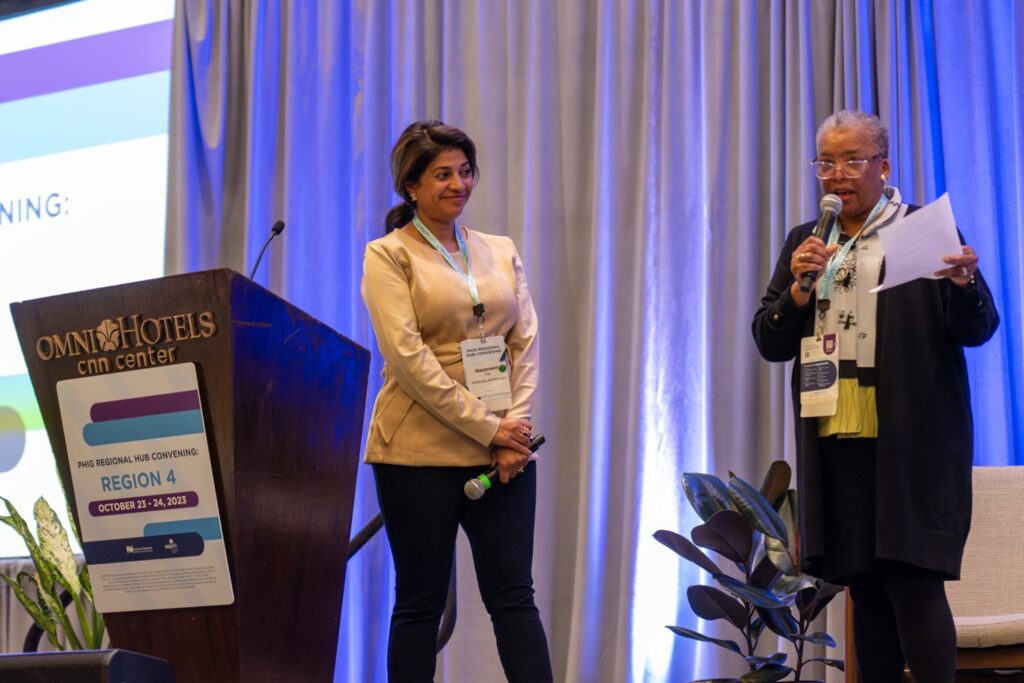“We’ve heard from PHIG recipients that they really want time and space to learn more about the experiences other funded health departments are having.”
– Angie Gainey, Convening Strategist and Senior Program Manager with Mississippi Public Health Institute (MSPHI)
On October 23-24, 2023, more than 80 individuals representing local and state health departments, PHIG national partners, the Centers for Disease Control and Prevention, and other public health organizations gathered in Atlanta, Georgia for the Region 4 Public Health Infrastructure Grant (PHIG) Hub Convening. This convening was hosted by the Mississippi Public Health Institute (MSPHI), which serves as the National Network of Public Health Institutes (NNPHI)’s regional hub for Alabama, Florida, Georgia, Kentucky, Mississippi, North Carolina, South Carolina, and Tennessee.
This marks the third PHIG Regional Hub convening within a larger series coordinated by NNPHI. These convenings offer PHIG recipients in-person platforms to receive hands-on technical assistance, exchange insights, and build relationships with their hub, national PHIG partners and technical assistance providers, and other health departments in their region.
This convening specifically was intended to kick off an ongoing dialogue between MSPHI, other technical assistance partners, and Region 4 PHIG recipients focused on the resources and supports health departments need to implement and sustain strategies to strengthen public health infrastructure.
Highlights of the gathering included:
-
- 15 rotating, topic-specific roundtable discussions led by technical assistance providers and national partners that allowed attendees to discuss challenges and identify resources in real-time.
-
- PHIG Recipient spotlight presentations allowed health departments to showcase their approaches to PHIG work. Attendees noted in a post-event evaluation survey that this session provided valuable insights into how health departments are approaching PHIG spending and problem-solving.
-
- Breakout sessions focused on performance management, the Data Modernization Initiative, and workforce supports helped technical assistance providers and national partners gain a better understanding of PHIG recipient needs and challenges.
“We’ve heard from PHIG recipients that they really want time and space to learn more about the experiences other funded health departments are having,” said Angie Gainey, Convening Strategist and Senior Program Manager with MSPHI. “They want to know how their peers in other states and counties are leveraging their PHIG funding. Even beyond the boundaries of PHIG, health departments want to connect around shared challenges, exchange lessons learned, and celebrate successes related to expanding or maintaining their workforce, measuring the impact of their programs, and communicating effectively in a time when health information is often politicized.”
Looking ahead, MSPHI will meet with recipient health departments individually to better understand their unique needs, while curating opportunities and platforms for PHIG recipients to connect and learn from one another.
This work is supported by funds made available from the Centers for Disease Control and Prevention (CDC) of the U.S. Department of Health and Human Services (HHS), National Center for STLT Public Health Infrastructure and Workforce, through OE22-2203: Strengthening U.S. Public Health Infrastructure, Workforce, and Data Systems grant. The contents are those of the author(s) and do not necessarily represent the official views of, nor an endorsement, by CDC/HHS, or the U.S. Government.



